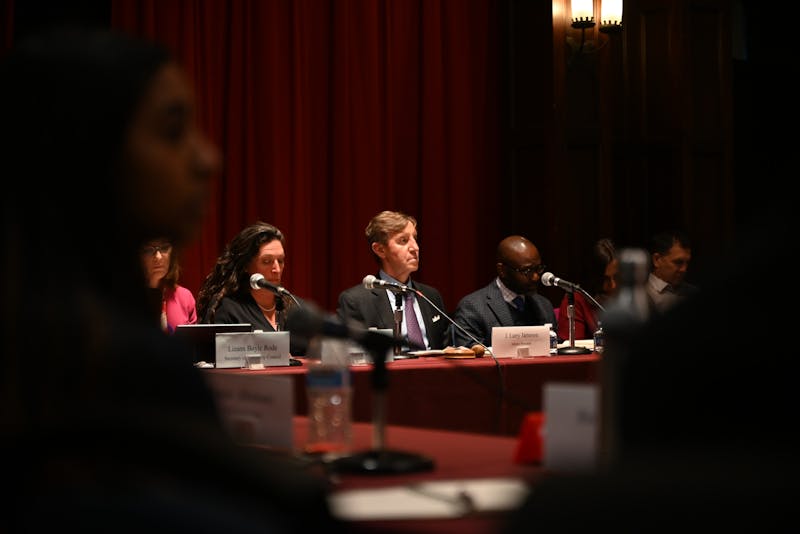
From phone calls to President Judith Rodin to meetings with Provost Robert Barchi, the Undergraduate Assembly is the student group with the most contact with Penn's administration. And the current UA has had vocal support from College Hall for many of its projects this semester, including the new basketball courts and its recycling program. But there is a sense among some members of the body that the group's loyalty sometimes leans toward the administration rather than students -- and that undergraduate concerns are subsequently left unaddressed. "I think the UA moves well on the issues relevant to them, but I don't know how cognizant they are on issues outside of the UA membership," said one member, who asked to remain anonymous. This tone may stem from the pro-administration rhetoric of UA Chairman Michael Bassik, who punctuates his public speeches with praise for Rodin and Barchi. "I highly doubt that there is another school across the country where the administration is so concerned with developing a mutually beneficial relationship with its student government body," the College senior has said. This attitude makes the UA extremely cautious about challenging the administration in any way, some members say. The student government body has this year taken the lead on issues like recycling and the lack of a video rental store. Yet it has shied away from issuing statements concerning the sweatshop controversy or the ongoing debate about whether to release names of students found guilty of violent offenses by the University's judicial system. "The issues the UA have chosen to take to the administration have been rather tame," the UA member said. But Bassik disputed that assessment. "It's not that we're not dealing with controversial issues, but it is that we haven't done a good job of letting the students know what we're doing," he said. "We react to issues the students care about, such as the opening of a new diner, the Penn Environmental Group and PSAS, and we promise we will hear out the concerns of the students." Added UA member Jed Gross: "I think it's good that the administration is willing to work with us, but I think it is important as representatives of the student body that we don't try to sell our constituents short." Still, members of the UA executive board said the organization has tried to create a healthy balance between students and the administration. "Basically, the UA gets more accomplished if it is working with them and not against them," said UA Vice Chairman Malhar Saraiya, an Engineering senior. And UA veteran Jonathan Glick, the body's liaison to University Council's steering committee, noted that the UA has had difficulty dealing with students on a more direct level. "It's always been an issue and it's something we have made great steps to improve from communicating more with students to getting our name out more," he said. Glick, the only other member besides Bassik to serve on the UA for the last four years, also said the UA owes its current achievements to the work of the last several UA chairmen, including Bassik. But other UA members had mixed opinions about Bassik. "I think he is a very opinionated [chairman]," one member said. "He can be unintentionally biased." And another member also had negative comments. "Internally, in terms of the UA, he has his faults," the member said. "I also think he needs to learn how to run meetings better." Bassik himself noted the lack of communication between the students and the UA. "Obviously, it's no secret that the UA has a PR problem, and there is a misconception that the UA has done nothing," he said. "We are doing much more to reach out to students to let them know what we are working on and how they can get involved too."
The Daily Pennsylvanian is an independent, student-run newspaper. Please consider making a donation to support the coverage that shapes the University. Your generosity ensures a future of strong journalism at Penn.
DonatePlease note All comments are eligible for publication in The Daily Pennsylvanian.







